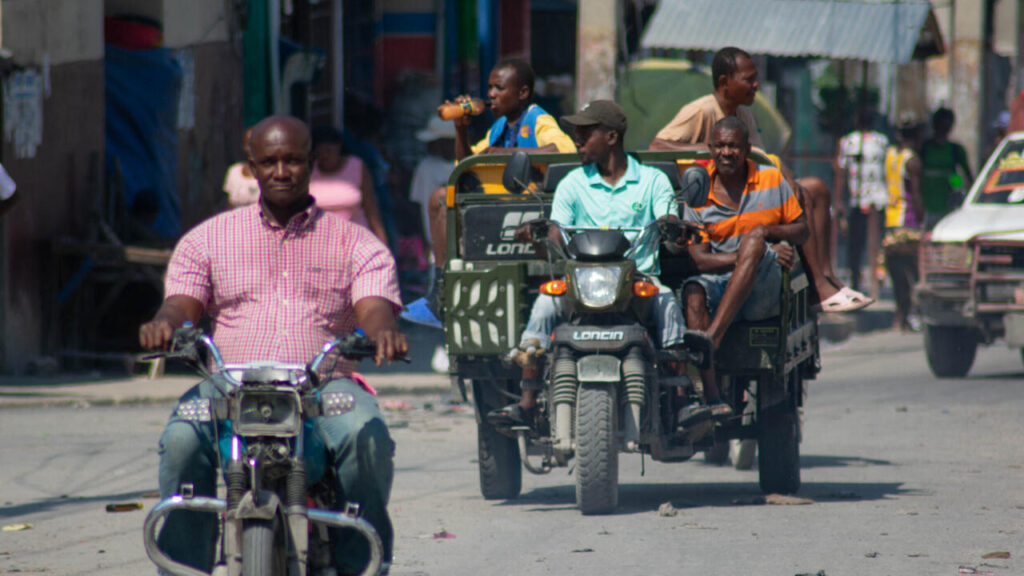Haiti's powerful gang leaders vowed Wednesday to continue the fighting that has plunged the country into chaos as officials work to establish an interim governing body to replace the outgoing prime minister.
Publication of:
3 minutes
The gang, which controls much of the capital Port-au-Prince, launched an armed operation nearly two weeks ago saying it intended to overthrow Prime Minister Ariel Henry, plunging the country into violent conflict while warning of the possibility of famine and civil war. caused it to fall into
Henry agreed to leave after Monday's emergency meeting of U.S., United Nations and Caribbean representatives, asking the Haitian people to establish an interim presidential council to govern until elections can be held. A blueprint was presented.
But Jimmy Chéridier, a powerful Haitian gang leader known as “Barbeque,” said Wednesday that his coalition of armed groups is “not concerned about Ariel Henry's resignation.”
“We are going to continue the fight for the liberation of Haiti,” a former police officer under UN sanctions told Spanish-language network W radio.
Haiti has not held a national election since 2016, and currently has no president or parliament. President Jovenel Moïse, who was assassinated in 2021, was not replaced, and Henry led the country after his death.
Henry was stranded in Puerto Rico after a visit to Kenya, hoping to iron out details of Nairobi's plan to lead a UN-recognized police force to restore order in Haiti. He announced late Monday that he would resign once the transitional council meets.
Kenya has said it has put its plans on hold, but President William Ruto confirmed on Wednesday that his country intends to continue its support mission after the interim council is established.
Guyana's President Irfaan Ali, who heads the regional bloc Caricom, said the crisis in Haiti is likely beyond the Caribbean military's ability to deal with it.
“The situation in Haiti shows how unprepared we were as a region,” he said at a University of Guyana event in Georgetown. “We are now rushing to establish joint command and joint operations.”
difficult story
The transition body will have seven voting members drawn from political parties, the private sector, and the Montana Group, a civil society coalition that had proposed forming a transitional government in 2021 after Moïse's assassination. It is scheduled to be done.
There will also be two non-voting seats on the council, one for civil society and one for the church. The body is to promptly appoint an interim prime minister.
The US State Department said on Tuesday that the council should be established within 24 or 48 hours, but talks have proven stalled, with most parties contacted by AFP still unable to reach an agreement. He said he wasn't close.
Parties close to Mr. Moïse have chosen to represent the transitional body, but politicians loyal to Mr. Henry remain divided over who should represent them.
“We are talking about political parties that have not been able to see eye to eye over the past few years,” Ivan Briscoe, head of the International Crisis Group's Latin America and Caribbean program, told AFP. .
With Prime Minister Henry departing now, “they will probably focus on the national interest and put party interests aside for a while until the election,” he said.
slowly return to normal
In Port-au-Prince, shops were open on Wednesday and life was slowly returning to normal, an AFP reporter observed.
Buses were running and some government offices remained open after the two-week shutdown. However, schools remained closed and the city's airport was also closed.
Several countries and the European Union have evacuated diplomats due to instability.
Haiti's mission to the United Nations announced on Wednesday that it would open an “air bridge” from the neighboring Dominican Republic to facilitate the movement of aid to the country.
Some residents welcomed Henry's resignation but wondered how the powerful gangs, which control vast swathes of the country and 80% of the capital, would act as Haiti tries to get back on its feet.
A man named Emanuel, who declined to give his last name, said Henry “was the biggest obstacle we faced.” “He had no plan for what to do with the country. We need a quick mechanism to replace him,” Emmanuel told AFP.
Another Haitian named Jean Duchel said, “It's now up to the people to decide who should be prime minister, who should be president. They should be Haitian patriots and have a sense of national sovereignty.'' We should have it,” he said.
(AFP)


